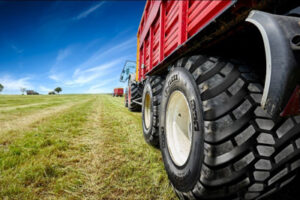BKT takes stock of the future of the agriculture tire industry
Seregno, Italy – Agriculture is an ever-evolving sector, which is highly influenced by the arrival of new technologies and increasingly innovative, state-of-the-art machinery. Today, traditional farming techniques are being overtaken by more efficient and productive operations – partly thanks to the arrival of Agriculture 4.0 applications, namely precision farming, IoT sensors, crop monitoring drones, as well as an entire series of devices and technologies that allow for 360-degree process optimization. A new scenario where sustainability is at the center of this transformation process.
BKT, as a leading Off-Highway tire manufacturer, has always been focused on continuous innovation and devotes significant efforts to research and development, pursuing its goal of bringing to life high-performance tires that meet stringent application standards and sustainability criteria. This is why BKT has analyzed the main trends that, according to the company, will shape the future of agricultural tires, matching the expectations of leading tractor and farm machinery manufacturers.
Sustainability and environmentally sustainable materials. There is a growing industry focus on biodegradable or recycled materials, making sustainability a priority for original equipment. As a response to this trend, tire manufacturers will increase their focus on the use of materials such as natural rubber or recycled compounds to reduce the environmental footprint. Also, the tire design will be conceived with due regard for improved fuel efficiency – and thus to lower emissions.
Smart tires and IoT integration. Next-generation tires will gradually integrate IoT sensors for real-time communication of pressure, wear, and performance data, also preventing maintenance interventions for reduced downtime. Moreover, the sensors will be able to provide relevant information on soil conditions, temperature, and load in view of optimizing overall performance and farming yields.
Endurance and durability. Increasing operational complexity requires ever stronger and more durable solutions. That is why compounds, tread design, and sidewalls will be optimized for an enhanced product life-cycle and increased product suitability for both traditional and modern practices.
Advanced manufacturing techniques. On the production side, too, we will witness the advancement of cutting-edge techniques, such as 3D printing, which would greatly accelerate a tire’s time-to-market while increasing their customization, thus meeting the specific needs of individual operators in a targeted manner.
Customization and adaptability. It is quite likely that in the future we will experience increasing flexibility and modularity of tires, which would then be able to easily adjust tire features according to the season, type of application, and field conditions. Hybrid tires will also gain ground and be able to handle a wide range of agricultural tasks, leading to greater versatility.
Hence, the future of the tire industry, notably the premium tire industry, will therefore be increasingly influenced and determined by the ongoing advancement of technology and an increased focus on sustainability and crop protection. Future-oriented manufacturers like BKT, who make performance, durability, and the environment three main pillars of continuous improvement, will be emerging with a view to growth and their ability to meet the complex needs of modern manufacturers.

